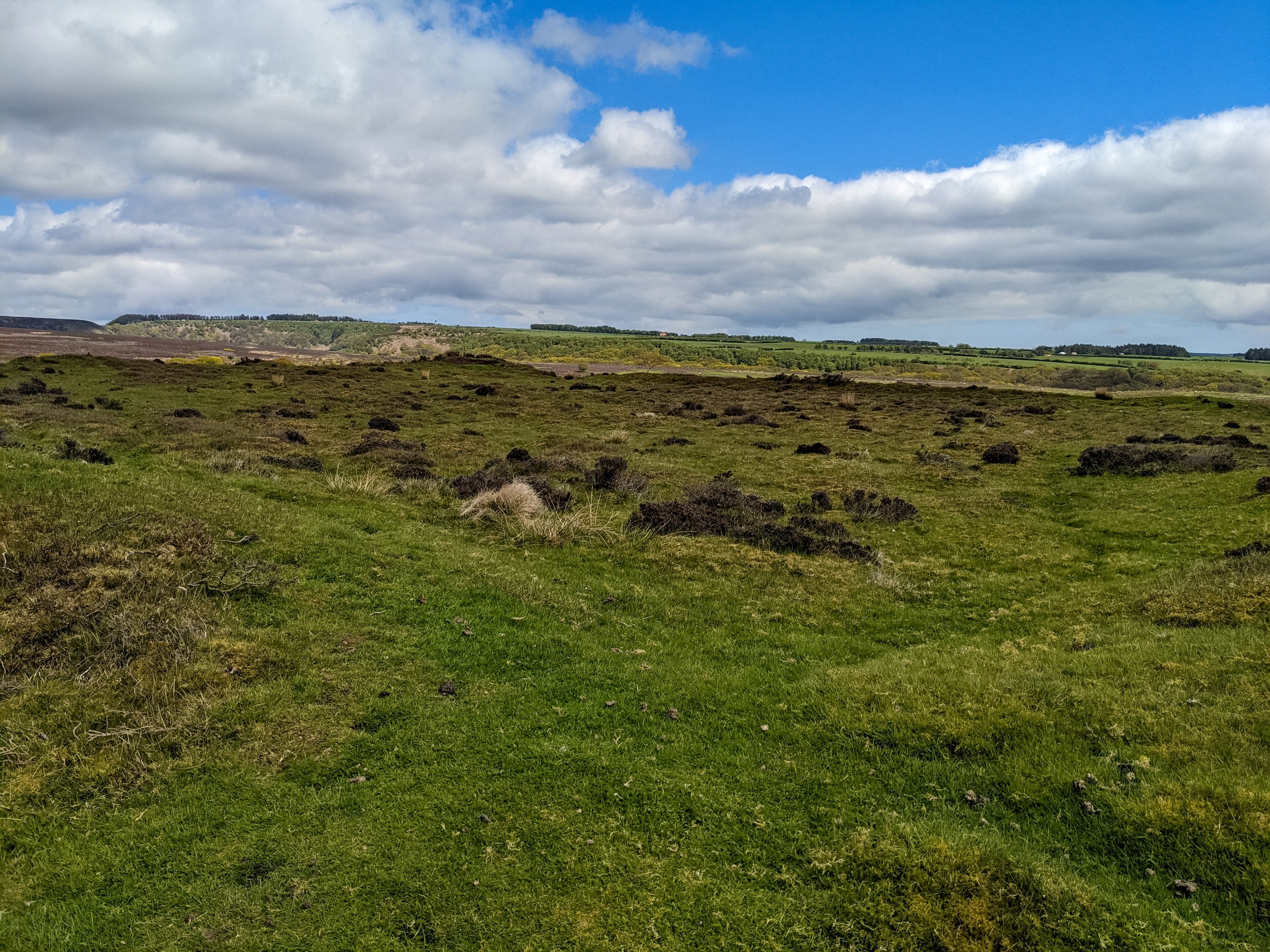Levisham Moor (Hole of Horcum)
The Hole of Horcum, set inside Levisham Moor in the North York Moors
Location: SE 843 943
Getting there: Limited parking in car park at top of Hole of Horcum, on A169
Height (at highest point (unmarked)): 278m
Prominence: unknown
Map: OS Explorer OL26 North York Moors Eastern Area)
Watching over one of the most spectacular natural features of the North York Moors, this beautiful, yet unusual area is a fantastic day out, with plenty of hidden history
Looking back along the Hole of Horcum
Levisham Moor lies north of Pickering, and not far from the very prominent Flyingdales radar station. The biggest attraction by far is the Hole of Horcum, a huge natural ‘bowl’, sunken into the moor. Legend says that the hole was formed when Wade the Giant scooped up a handful of earth to throw at his wife during an argument, but domestic abuse issues aside, the hole has been formed over the years by ‘spring sapping’, where streams at the edge of the bowl have sodden and undermined the earth, causing it to collapse into the bowl. The process still continues today.
I always find the North York Moors slightly unusual, maybe because of countless journeys on the A169, insofar that they look largely flat from the road. This is deceiving, as the Hole of Horcum demonstrates, the moors hide a number of sunken bowls and valleys.
Levisham Moor, above the Hole of Horcum
Onto Levisham Moor itself, and alongside incredible views, particularly of the rest of the National Park to the south and west, lie a number of ancient sites. Human activity here dates back to the bronze age, with a number of burial mounds discovered. There are also the remains of a fair-sized settlement, with the holes dug for the foundations clearly visible.
The remains of the settlement on Levisham Moor
A slight detour to the west of the moor will lead you to the ruined Skelton Tower. On the approach to the tower you will once again be treated to spectacular views, with the North York Moors railway snaking through the valley below.
Skelton Tower, sitting on Levisham Moor
Skelton Tower was built as a shooting lodge by the Reverend Robert Skelton in 1830. Its peaceful location meant it likely served as a beautiful retreat. The date of its ruin is difficult to find, though photos exist of it still standing in the 1930s.
Lack of other parking means the best way to approach the Moor is from the car park above the Hole of Horcum. You can either walk the length of the moor to Levisham, and then head up onto the moor, or cut through Dundale Griff. It’s also worth considering exploring the woods to the north and west of Skelton Tower (note you will need to cross the train tracks, so take care)











